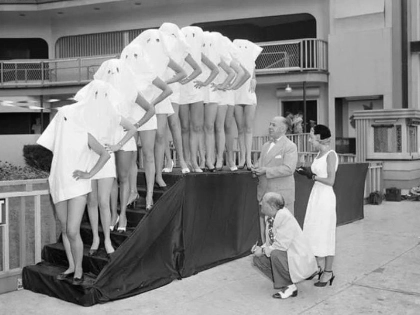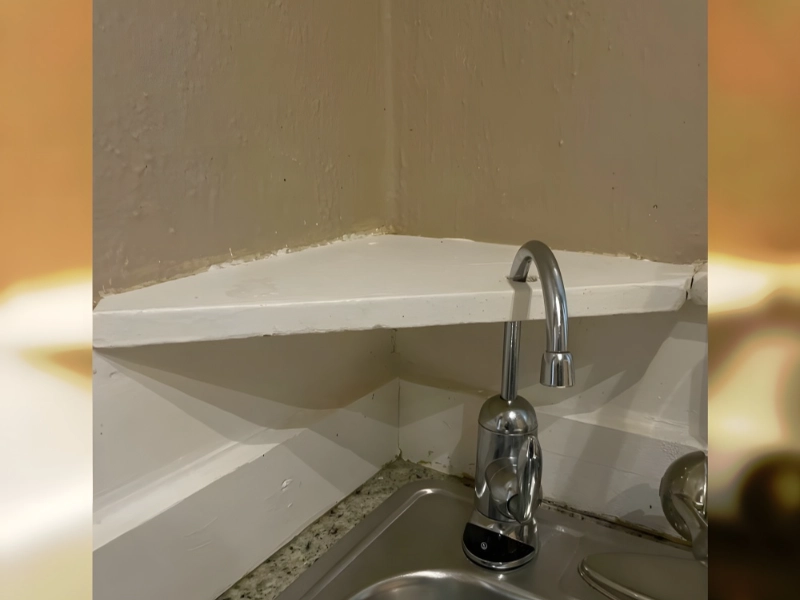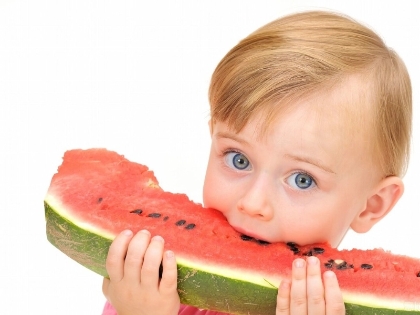Debunking the 8-Glass Rule: What Experts Want You to Know
Advertisement
Suggesting that everyone should drink eight 8-ounce glasses of water daily, the "8-glasses of water a day" rule has been a common piece of health advise for years. Experts are now questioning this advice, though, and pushing a more complex view of hydration. The facts behind the 8-glass rule and what you actually need to know about keeping hydrated are investigated in this post.
1. The Origin of the 8-Glass Rule

Although the 8-glass rule has been generally embraced for decades, where did it start? This advice originated with a 1945 Food and Nutrition Board suggestion suggesting adults drink roughly 2.5 litres of water everyday. This number includes all food and beverages, although it was sometimes taken as a rigid need for eight 8-ounce glasses of water every day. This misconception acquired popularity over time and is now a regular recommendation from dietitians, doctors, and fitness buffs.
Though it was simple and easy to follow, the 8-glass rule neglected to consider personal variations in hydration requirements. The amount of water a person needs can be quite influenced by age, gender, activity level, climate, and general health. Athletes or those who lead very active lives, for example, will need extra fluids to replace what they lose via sweat. Likewise, people who live in hot areas could need more water to remain comfortable and preserve good body performance.
Furthermore, the focus on consuming a particular amount of water could encourage one to believe that all fluids are not created equal. Although hydration depends on water, other drinks and foods greatly help with total fluid consumption. Fruits and vegetables, for instance, have a lot of water, and drinks like tea and coffee also help to hydrate one. This knowledge is really vital since it emphasises the need of thinking about all the sources of hydration instead than obsessing over a particular count of glasses.
Furthermore, the 8-glass rule may unintentionally encourage a poor water drinking behaviour. Some people might get unduly preoccupied with following this arbitrary rule, which would cause too much water consumption or hydration level worry. This can lead to a disorder called hyponatremia, in which too high water intake dangerously dilutes the body's salt levels. Knowing the background of the 8-glass rule enables us to see its restrictions and the need of a more customised approach to hydration that considers specific needs and situation.
All things considered, the 8-glass rule sprang from a misreading of early dietary recommendations. Although it is a common piece of advise, it ignores personal demands and oversimplifies the complexity of hydration. Knowing its roots helps us to investigate a more complex view of hydration and develop better habits fit for our own lifestyle.
Advertisement
Recommended Reading:
Hilarious Award-Winning Wildlife Photos Proving Animals Have a Sense of Humor →
You are viewing page 1 of this article. Please continue to page 2
Stay Updated
Actionable growth insights, once a week. No fluff, no spam—unsubscribe anytime.
Advertisement
You May Like

Owners Were Shocked! The Amazing Changes After Pet Grooming
08/12/2025

Underground Monsters: The Insane Depths of Earth's Deepest Mines Revealed
08/14/2025

10 Incredible Cities That Have Changed Beyond Recognition
09/01/2025

Wardrobe Woes: Hilarious Celebrity Outfit Blunders You Can't Unsee
08/05/2025

Experience the Thrill of the World's Fastest 10 Cars
08/22/2025

The Strangest Beauty Pageants Through History
07/27/2025

24 Pets Who Are Evolving Into Their Humans
08/07/2025

25 Hilarious Photos that Show the Funny Side of Women's Tennis
06/21/2025

16 World-Famous Lightning Landmarks: A Must-Visit Pilgrimage
08/03/2025

Nature's Perfect Timing: 15 Mind-Blowing Animal Photos You Can't Miss
07/04/2025

10+ Captivating Portraits of Women in Uniform
07/28/2025

Hair Mistakes That Make Women Look Much Older Than They Are
08/19/2025

The Best Shot Of A Wild Animal You've Never Seen Before
08/14/2025

Glamorous Unions: Memorable Celebrity Wedding Snippets
08/30/2025

Debunking the 8-Glass Rule: What Experts Want You to Know
07/03/2025

DIY Disasters: When Repairs Go Horribly Wrong
06/21/2025

19 Reddit Users Shared Their Best Secrets to Make Life Easier at Home
07/18/2025

21 Hotels That Can Make Anyone Want to Book the Next Flight
07/23/2025

20 Luxurious Things From Dubai That Made Us Gasp
06/14/2025

Hilarious Award-Winning Wildlife Photos Proving Animals Have a Sense of Humor
07/03/2025

14 Unique Cat Breeds That You Don’t See Every Day
08/11/2025

The Surprising Benefits of Sleeping Next to a Lemon
08/05/2025

9 Amazing Facts About The Blue Lagoon - #6 Will Shock Even Icelanders!
08/20/2025

Watermelon Diet: A Delicious Choice for Summer Weight Loss
09/02/2025
Comments
FrostedHarbor · 07/28/2025
Latent optionality is well packed.